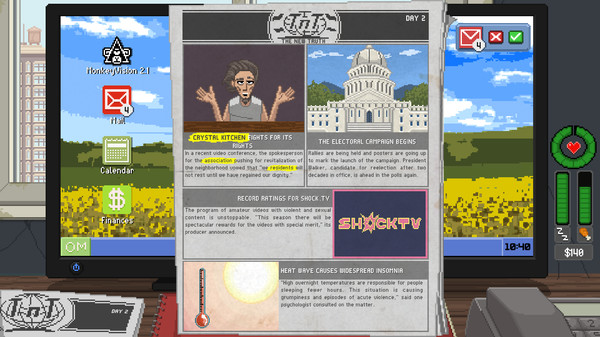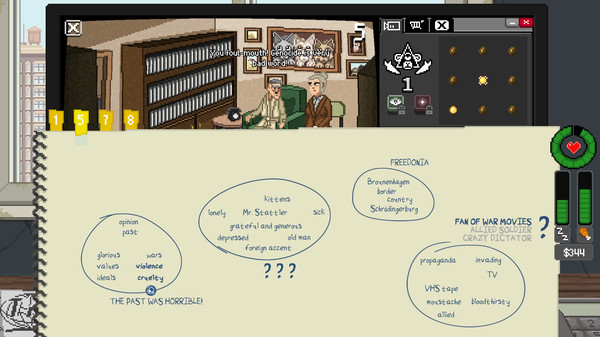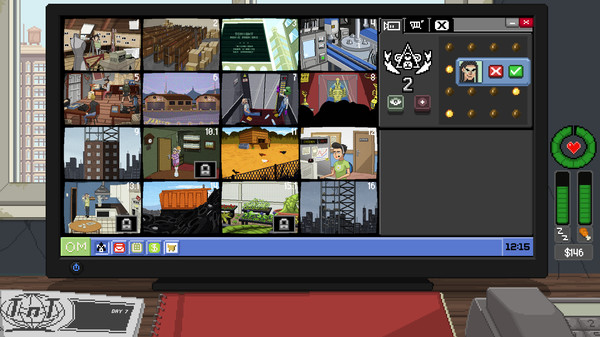Do Not Feed the Monkeys begins when you join the Primate Observation Club. You are warned that this club is addictive, so don’t forget to eat and sleep. This is good advice for you as a player as well as your character.
As a new member of the Club, you are given access to cameras that peer into the lives of all kinds of subjects. They show everything from broad landscapes to cramped basements. The one rule you are given is that you must not interact with the subjects – or feed the monkeys. You receive email requests to provide information gleaned from your surveillance.
The gameplay is simple. You click through the different apps on your computer, checking your emails, your surveillance cameras and the online store where you can upgrade your setup. You should move away from your screen every so often to eat, sleep and work, because you’ll need to pay rent when the landlady knocks.

Do Not Feed the Monkeys jumps instantly into the game. Your friend messages you to say you’re in the club and you get started. You are drip fed information about the game world. There is a newspaper you can read each morning. Most of the information you get from the cameras you have access to. You also have a search engine you can use to learn more if something jumps out at you as particularly interesting. Emails, messages and conversations with people who come to your door reference not only big news stories but also general cultural phenomena. This cleverly fleshes out the setting in a way that eases you into it, so you almost don’t notice when things start to get weird.
The premise isn’t unique, but the execution of Do Not Feed The Monkeys is excellent. There are lots of stories to follow that are grounded well enough in real-world issues but venture into more fun and fantastic territory once you’re hooked. Your subjects range from the residents of an elderly care home to conspiracy theorists to black-market paparazzi. It is up to you if you’re just going to sit back and watch, or if you’re going to break the zero interference rule and become a part of what’s going on.

The game shows obvious skill on behalf of the writers by exploring serious topics in a fun way that doesn’t detract from their gravity. As well as the obvious theme of surveillance and privacy, it also examines addiction and recovery, religion, fascism and numerous flaws within the oppressive capitalist state. The frank exploration of these themes has earned the game an M rating. The stories are exaggerated enough to feel like a departure from reality – extra terrestrials make an appearance – but are still thought-provoking.
The refreshing disconnect from reality is enhanced by the unclear date of the game. The 8-bit art style and the landlady visiting in person for cash rent payments evoke a sense of classic dystopias from decades ago, while computer addiction and reach of digital surveillance feel almost futuristic. Stories in the newspaper of corruption in politics, meanwhile, feel very contemporary.
Review: Do Not Feed the Monkeys (Nintendo Switch)
Great
Do Not Feed the Monkeys is a simple game that has put a lot of effort into constructing an absorbing world that it is easy to let take priority over making sure your character eats


